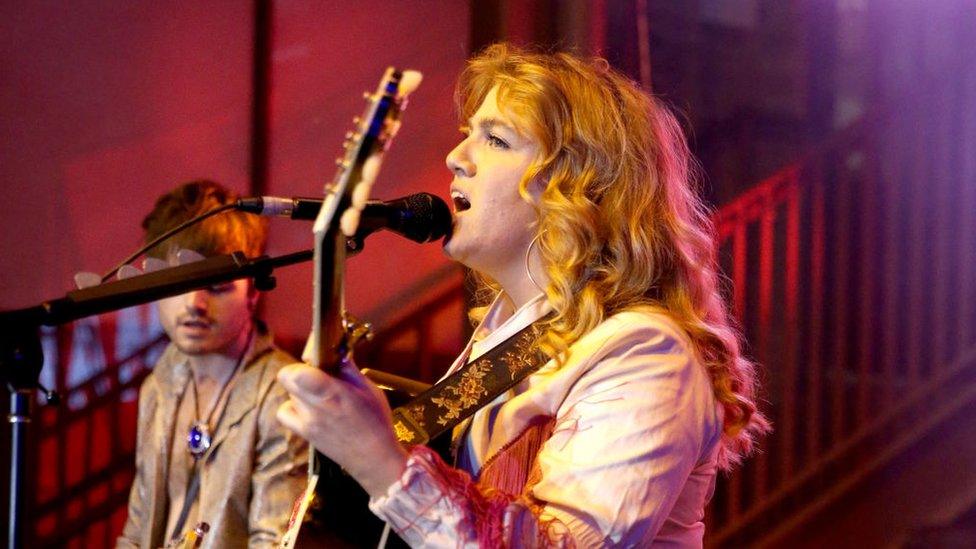Moles: Bath nightclub where Oasis and Radiohead cut their teeth to shut
- Published
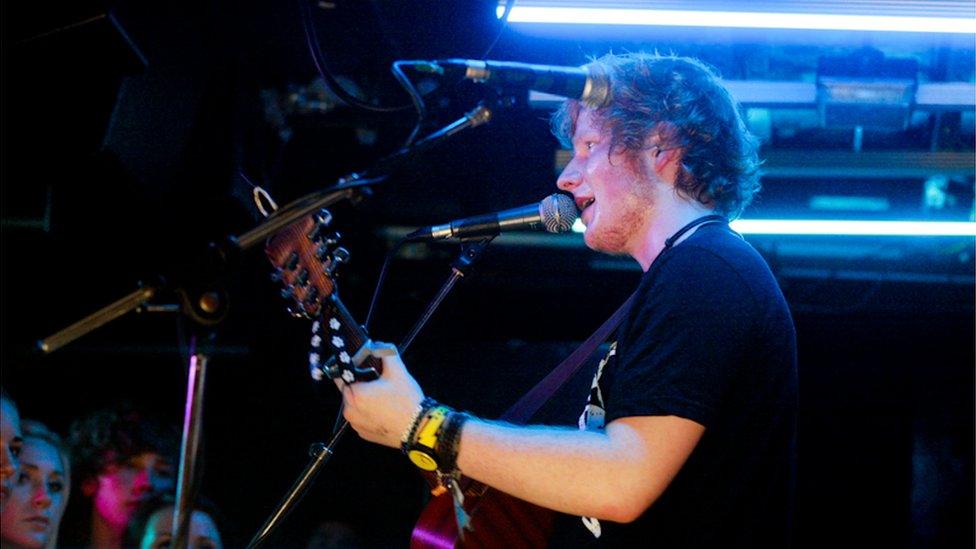
Ed Sheeran played the venue in 2011, shortly before releasing his debut album
One of the best-known grassroots music venues in the UK, Moles in Bath, is to shut after 45 years.
The popular club is where acts like Oasis and Ed Sheeran cut their teeth.
Manic Street Preachers got signed after playing a gig there, and Supergrass shot the cover for their debut album in the dressing room.
But the owners have filed for insolvency, saying that rising bills imposed by the cost of living crisis have "crippled us".
"Making the decision to close Moles was horrendous," said co-owner Tom Maddicot, "but the reality is that live music at grassroots level is no longer economically viable."
The venue is closing its doors with immediate effect. All future shows have been cancelled.
Maddicot warned that other small venues could be forced to close if the situation does not improve.
Moles opened on George Street, Bath, on New Year's Eve in 1977. Founder Philip Andrews signed a lease for just £2,000 - then had to renovate the entire venue, which had been derelict for five years.
Since then, the 220-capacity venue has put on early shows for some of the world's biggest artists - including Blur, The Killers, Pulp, Tori Amos, Fatboy Slim, The Cure, Bastille, Eurythmics, George Ezra, The Smiths, Massive Attack and Wolf Alice.
"It's almost like a list of who's who of these big headliners," programme manager Liam Baker told the Big Issue, external earlier this year. "They all have definitely started at the grassroots."
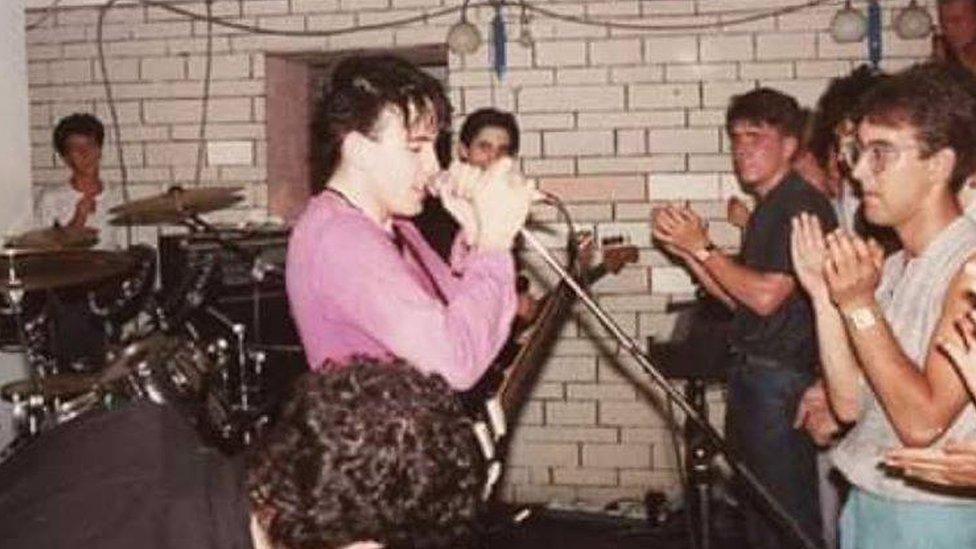
The Cure played the venue in the early days, before a stage had even been built
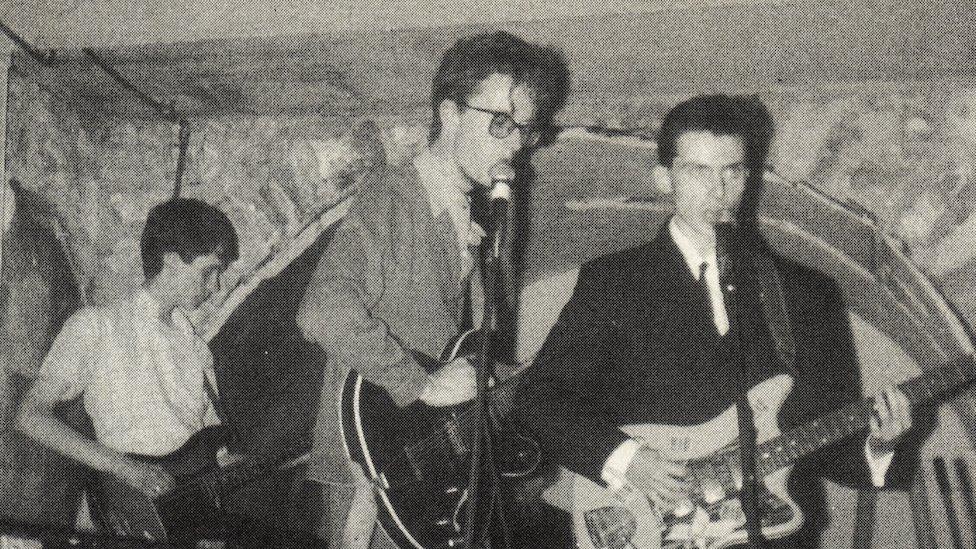
An early incarnation of Pulp passed through the doors in the 1980s

The Killers graced the stage while they were on their way up
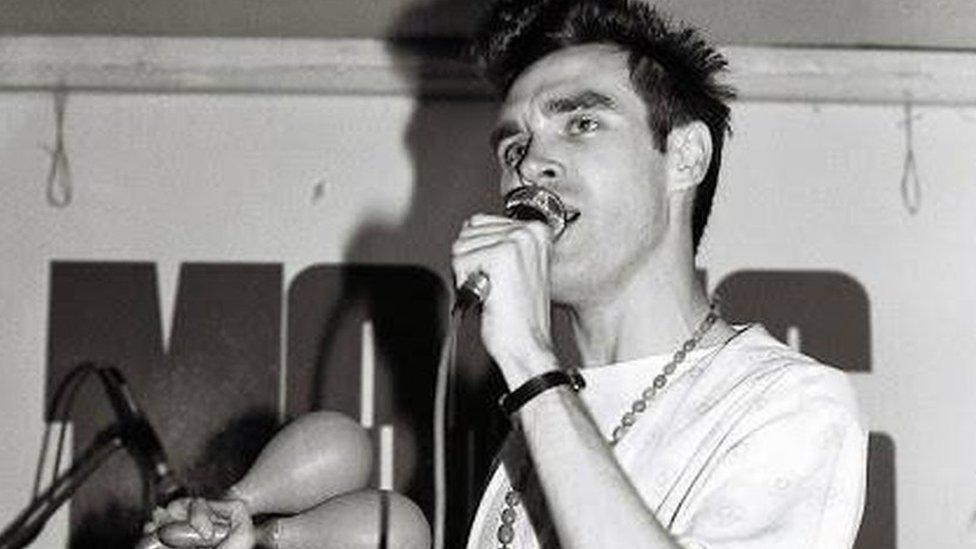
According to the club, barely 30 people turned up to see The Smiths when they played at the start of their career
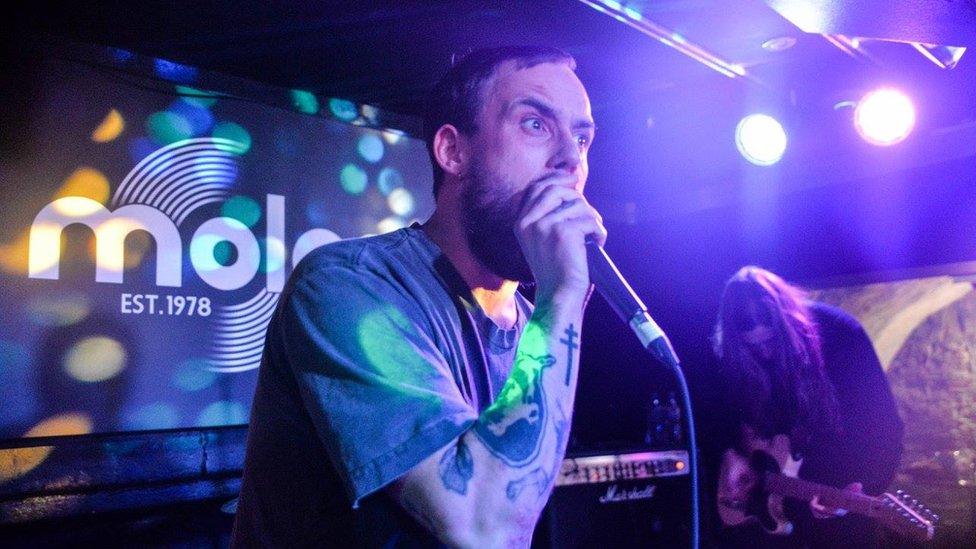
Recent shows have been played by the likes of Idles
More recently, the venue has hosted shows by Supergrass, Slowthai, and fast-rising indie band The Last Dinner Party.
Its closure means another loss for the UK's shrinking live music circuit.
Within hours of Mole's announcement, Herefordshire's Nozstock festival also said it will close due to financial strain - although it will stage one last hurrah in 2024.
The award-winning Field Maneuvers festival in Norfolk is also coming to an end; while Bluedot, which is held at Jodrell Bank Observatory in Cheshire, is on hiatus after a tricky year.
120 venues closed this year
Clubs, concert halls and small independent festivals that survived the Covid-19 lockdown have been hit by the rising energy and labour costs, at the same time as government assistance and deals with landlords and banks on rent and loans came to an end.
According to the Music Venue Trust (MVT), about 120 of the UK's small venues - about 15% of the total - have closed or stopped putting on gigs this year, meaning the loss of 4,000 jobs and more than £9m in income for musicians.
A number of new venues have opened, leaving about 835 venues linked to the trust - a net 12% drop this year.
Those that remain made an average profit of 0.2% of sales in 2022, "as close to nothing as makes no difference," according to CEO Mark Davyd.
He said the closure of Moles was symptomatic of a failure by the music industry and the government to invest in venues that support up-and-coming acts.
"Unless it gets serious about its responsibilities to encourage, nurture and develop the grassroots live sector, the music industry as a whole will face a catastrophic failure of artist development," he said in a statement.
The trust is looking to France for inspiration. There, the government has imposed a levy on tickets for arena shows, with the money distributed to smaller venues and up-and-coming artists.
Davyd has today written to the UK government and opposition parties, lobbying for similar legislation to be introduced in the UK.
The Association of Independent Festivals is also calling on the government to reduce VAT on festival tickets to help support the sector's recovery.
Meanwhile, the MVT is running an innovative scheme called "Own Our Venues". The project encourages fans to invest in a charitable society, which then purchases threatened venues, and leases them back to owners on more favourable terms.
It purchased its first venue, Atherton's Snug Club, in October. Other venues being considered include The Bunkhouse in Swansea, Hull's Polar Bear Music Club and The Hairy Dog in Derby.
Related topics
- Published4 October 2023

- Published24 March 2023
